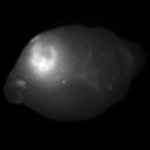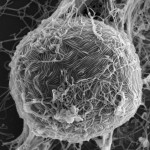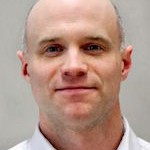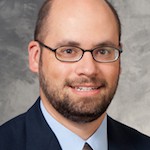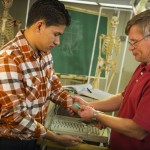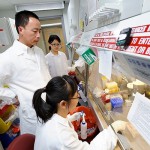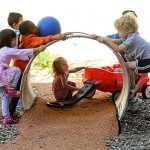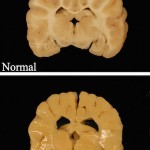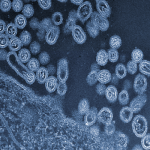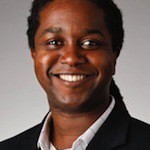Tag Health & medicine
Tests show Midwestern canine flu outbreak stems from new strain
Canine flu outbreak
UW scientists find key link in cold-virus picture
Researchers at University of Wisconsin School of Medicine and Public Health (SMPH) have made a key discovery about a cold-causing virus that is strongly associated with severe asthma attacks.
Annual wellness expo raises awareness — and funds
Fun fitness activities for all ages, from a Zumbathon to a fitness obstacle course, will be highlighted at the Wisconsin Wellness Campaign Expo from 10 a.m. to 2 p.m. Saturday, April 11, at the Southeast Recreational Facility. Hosted by the University of Wisconsin–Madison Division of Recreational Sports, the expo provides campus and the community the chance to connect with organizations promoting wellness. The free event is open to the public.
Two receive awards for research to benefit children
Two University of Wisconsin–Madison researchers have received three-year Hartwell Individual Biomedical Research Awards to support research into fungal disease and therapy for attention deficit hyperactivity disorder (ADHD).
Global Health Symposium spans disciplines, generations and the world
From avian influenza to empowering women in agriculture to improving access to pain medicines in Africa, Global Health Symposium 2015: Advancing Health in an Interconnected World gives the UW community a place to explore the complex determinants of health in Wisconsin and across the world.
Ready, aim, fire! Cancer-targeting mechanism underlies promising UW–Madison spinoff
For all their lethality, cancer cells don't look much different from healthy cells, a simple fact that causes endless pain and suffering. Finding cancer cells that have spread and threaten to grow into metastatic tumors is often a life-and-death matter.
Researchers aim to broaden understanding of how toxins affect the body
Even in an era in which there is increased emphasis on living "green," humans are constantly exposed to a wide range of toxins in everything from our air, food and water to the goods we buy.
UW to test ‘breakthrough’ pediatric leukemia treatment
A promising method of immunotherapy to treat children with relapsed acute lymphocytic leukemia (ALL) is opening at the University of Wisconsin Carbone Cancer Center and American Family Children's Hospital. The trial is open to relapsed/refractory pediatric ALL patients who have limited treatment options.
Zoo’s mother-to-be receives prenatal care from UW-affiliated health professionals
While many in Madison were surprised and delighted on Feb. 10 to learn that Henry Vilas Zoo’s Bornean orangutan, Kawan, was expecting the zoo’s first baby primate in 14 years, it was old news to Barb Trampe, chief sonographer at the UW/Meriter Center for Perinatal Care. She had already seen the first baby pictures.
Innovative teaching practices encourage students in STEM
Like many seniors majoring in biology, Christian Hernandez is pursuing the pre-med track. However, he nearly didn’t make it past his freshman year at the University of Wisconsin–Madison As a Latino first-generation college student, Hernandez says he had no role models to help him achieve his career goal: to change the face of medicine in the United States. But then he took Physiology 335.
Laying a foundation for treating ALS, spinal cord injury
Su-Chun Zhang, a professor of neuroscience and neurology at the University of Wisconsin–Madison Waisman Center, and his research team have published a unique model for learning more about the role of human astrocytes today in the Journal of Clinical Investigation today. The findings may lay a foundation for the treatment of a number of neurodegenerative diseases, including ALS (amyotrophic lateral sclerosis) and debilitating spinal cord injuries.
‘Kindness curriculum’ boosts school success in preschoolers
Watch Richard Davidson discuss this project at the 2015 World Economic Forum Annual Meeting in Davos, Switzerland. Over the course of 12 weeks, twice…
Rare neurological disease shines light on health of essential nerve cells
Ian Duncan is a Scotsman with the iron discipline and stamina of a competitive marathoner, triathlete and cross-country skier. As a neuroscientist at the School of Veterinary Medicine at the University of Wisconsin–Madison, he's applied his tenacity to a rare genetic disorder.
Will they be back? Predicting readmissions for elderly patients
Seniors living in the most disadvantaged 15 percent of U.S. neighborhoods are much more likely to make repeat trips to the hospital, according to a study by Amy Kind, a University of Wisconsin–Madison assistant professor of medicine.
Wisconsin’s health: Significant gaps by race, income, geography
A new report by researchers at the University of Wisconsin Population Health Institute reveals that while some trends in the health of Wisconsin residents are positive, this progress is not shared by all residents of the state.
Halting the hijacker: Cellular targets to thwart influenza virus infection
The influenza virus, like all viruses, is a hijacker. It quietly slips its way inside cells, steals the machinery inside to make more copies of itself, and then - having multiplied - bursts out of the cell to find others to infect.
Religious denominations friendly to same-sex marriage may protect gay youth from depression
Religious affiliation is generally a source of support, fostering resilience during difficult times. But religion doesn’t exactly have a reputation as a refuge for young gay people. That reputation may change for the better with new findings from researchers at the University of Wisconsin–Madison, Wilfrid Laurier University in Waterloo, Ontario, and Sungkyunkwan University in Seoul, South Korea.


